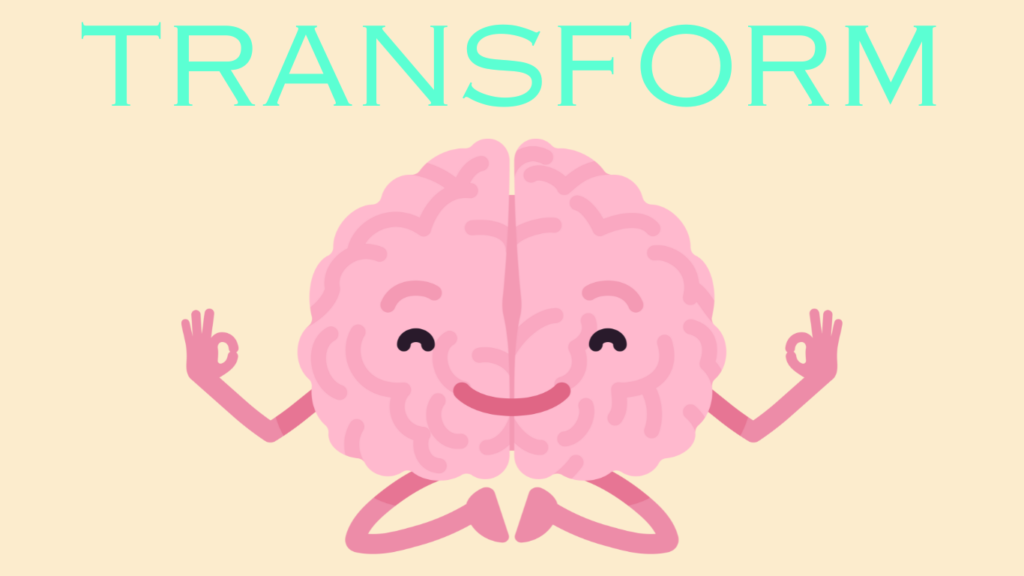The Transformative Benefits of Meditation: A Journey to Inner Peace and Well-Being

In today’s fast-paced world, finding peace of mind and balance can be a challenge. With the constant buzz of technology, work pressures, and personal commitments, it’s easy to feel overwhelmed. This is where meditation comes in—a practice that has been embraced for thousands of years to foster mental clarity, emotional stability, and physical well-being. Whether you’re a seasoned meditator or a beginner, the benefits of meditation can profoundly impact your life.
Table of Contents
What are the benefits of meditation?
Reduces Stress and Anxiety
One of the most significant benefits of meditation is its ability to reduce stress. Through mindfulness practices like deep breathing and focused attention, meditation helps to calm the mind, relax the body, and manage chronic pain.
When you meditate, your body produces less cortisol (the stress hormone), which lowers the overall stress response. Over time, regular meditation can help you manage anxiety more effectively, creating a sense of emotional balance.
Key Tip: A simple 10-minute meditation each day can create noticeable improvements in managing stress.
Enhances Emotional Health
Meditation, especially mindful meditation, encourages a deep connection with your inner self, helping you become more in tune with your emotions. It allows you to observe negative thought patterns without judgment, leading to improved emotional well-being.
The National Center for Complementary and Integrative Health supports research on various health approaches, including the benefits of mindful meditation for mental health. Studies have shown that meditation can reduce symptoms of depression by promoting feelings of positivity and self-awareness. This practice empowers you to respond to challenges more calmly and with greater clarity.
Key Tip: Practicing loving-kindness meditation, where you focus on sending love and compassion to yourself and others, can foster emotional resilience.
Improves Focus and Concentration
In a world of constant distractions, meditation training is invaluable for enhancing focus. This practice fosters mental discipline, which is crucial for improving concentration and self-control.
Meditation trains the mind to stay present, improving your concentration and attention span. It’s like a workout for your brain. Over time, you’ll notice an increased ability to stay focused on tasks, retain information, and improve productivity.
Key Tip: Start with short sessions focused on mindful breathing, gradually extending the time as you become more comfortable.
Promotes Physical Health
The mind-body connection is powerful, and meditation has been shown to offer several physical health benefits. It can lower blood pressure, improve heart health, and even boost the immune system.
Meditation can also alleviate symptoms of irritable bowel syndrome (IBS), a stress-related condition. By reducing stress, meditation helps decrease inflammation in the body, which is linked to various chronic conditions like heart disease and diabetes.
Key Tip: Incorporate body scan meditation to bring awareness to areas of physical tension, encouraging relaxation and healing.
Fosters Better Sleep
If you struggle with insomnia or restless nights, meditation programs might be the key to unlocking better sleep. By quieting the mind and calming the nervous system, meditation can make it easier to fall asleep and enjoy more restful, deep sleep.
Meditative practices like yoga nidra (a form of guided sleep meditation) can be particularly helpful for those with sleep difficulties.
Key Tip: Try a 10-minute guided meditation before bed to ease into a state of relaxation.
Increases Self-Awareness
Meditation helps you develop greater self-awareness by encouraging you to observe your thoughts and emotions without judgment. Randomized controlled trials have shown that mindfulness and meditation practices are effective in improving various physical and mental health conditions.
This heightened awareness enables you to identify negative patterns and behaviors, allowing for personal growth and self-improvement. The practice of mindfulness teaches you to live in the present moment, which can lead to a deeper understanding of yourself and your reactions to the world around you.
Key Tip: Journaling after meditation can help you reflect on insights gained during your practice.
Supports Addiction Recovery
Meditation can be a powerful tool in overcoming addiction. Post-traumatic stress disorder (PTSD) can also benefit from meditation, as various studies indicate that mindfulness practices may help alleviate the residual symptoms experienced by individuals with PTSD, contributing positively to their overall mental health.
Mindfulness meditation, in particular, helps individuals cultivate self-control and build mental resilience, making it easier to resist cravings and impulses. By enhancing emotional awareness and reducing stress, meditation supports the recovery process and promotes long-term sobriety.
Key Tip: Incorporate mindfulness practices into your daily routine to manage cravings and maintain focus on your recovery goals.
Boosts Creativity and Problem-Solving
Meditation practices can unlock your creative potential by quieting the mental clutter that often blocks inspiration. With a clearer, calmer mind, you can approach problems from new perspectives and think outside the box.
Meditation promotes divergent thinking, which is essential for creative problem-solving and innovation.
Key Tip: Use visualization techniques during meditation to tap into your creative energy and imagine new possibilities.
Strengthens Relationships
By cultivating a sense of inner peace and emotional stability through meditation techniques, meditation can improve your relationships with others. When you are less reactive and more mindful, you communicate more effectively and handle conflicts with greater patience and compassion.
Loving-kindness meditation, in particular, can deepen your empathy and strengthen your connections with others.
Key Tip: Practice gratitude meditation to remind yourself of the positive aspects of your relationships, fostering appreciation and warmth.
Encourages a Sense of Purpose
Meditation connects you with your inner self and supports your mental health by helping you gain clarity on your values and life goals. This can lead to a deeper sense of purpose and fulfillment.
As you become more attuned to your true self, you may find yourself making choices that align with your passions and values, leading to a more meaningful life.
Key Tip: Dedicate time to meditation to reflect on your purpose, using it as a guide to steer your decisions and actions.
Overcoming Common Challenges
Meditation is a practice that requires patience, dedication, and persistence. However, many people face common challenges that can hinder their progress. Here are some tips to overcome these challenges:
- Difficulty in quieting the mind: One of the most common challenges faced by beginners is the inability to quiet the mind. To overcome this, try focusing on your breath, a mantra, or a physical sensation in your body. When your mind wanders, gently bring it back to the chosen focus.
- Physical discomfort: Sitting for long periods can be uncomfortable, especially for those who are new to meditation. Try using a cushion or a chair to support your back, and take regular breaks to stretch and move your body.
- Lack of motivation: It’s common to feel unmotivated or uninspired to meditate, especially when you’re just starting out. Try setting a regular schedule, finding a meditation buddy, or using guided meditation apps to stay motivated.
- Emotional challenges: Meditation can bring up strong emotions, especially if you’re dealing with trauma or stress. Try being gentle with yourself, and remember that it’s okay to take breaks or seek support from a mental health professional.
Getting Started with Mindfulness Meditation
Getting started with mindfulness meditation is easy and straightforward. Here are some steps to follow:
- Find a quiet space: Identify a quiet and comfortable space where you can sit and meditate without distractions.
- Choose a meditation technique: There are many meditation techniques to choose from, including focused attention, open monitoring, and loving-kindness meditation. Experiment with different techniques to find what works best for you.
- Set aside a regular time: Commit to a regular meditation practice by setting aside a specific time each day. Start with a short period, such as 5-10 minutes, and gradually increase as you become more comfortable with the practice.
- Use guided meditation resources: Guided meditation apps, videos, and audio recordings can be a great way to get started with mindfulness meditation. Try using resources like Headspace, Calm, or Insight Timer to find guided meditations that suit your needs.
Tips for Establishing a Regular Practice
Establishing a regular meditation practice takes commitment and discipline, but the benefits are well worth the effort. Here are some tips to help you establish a regular practice:
- Make it a habit: Try to meditate at the same time every day, so it becomes a habitual part of your routine.
- Start small: Begin with short periods of meditation, such as 5-10 minutes, and gradually increase as you become more comfortable with the practice.
- Be consistent: Aim to meditate at least 3-4 times a week, and ideally every day if possible.
- Find a meditation community: Joining a meditation community or finding a meditation buddy can be a great way to stay motivated and inspired.
- Track your progress: Keep a meditation journal or use a meditation app to track your progress and stay motivated.
Final Thoughts
Meditation is more than just a relaxation technique—it’s a tool for personal transformation. Whether you’re looking to reduce stress, improve emotional well-being, or find a deeper sense of purpose, meditation offers a wealth of benefits for your mind, body, and soul. The best part? It’s accessible to everyone. All you need is a quiet space and a few minutes of your time each day. Start small, be consistent, and allow yourself to experience the profound changes that meditation can bring.

